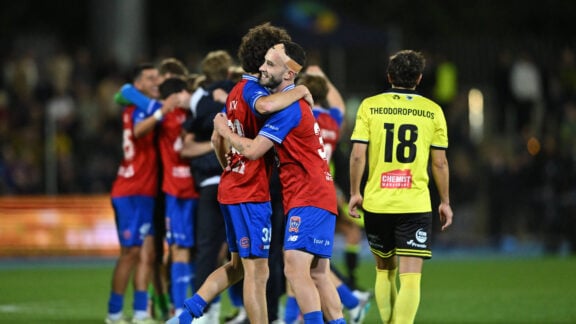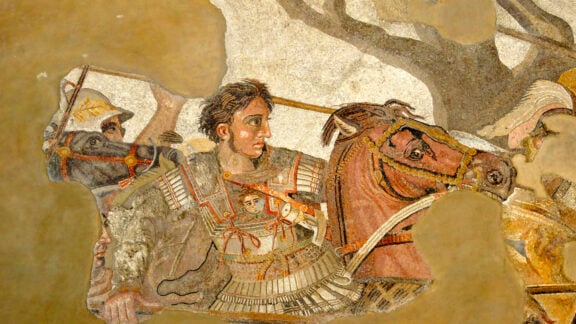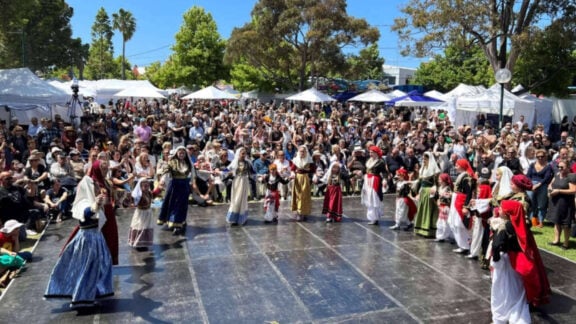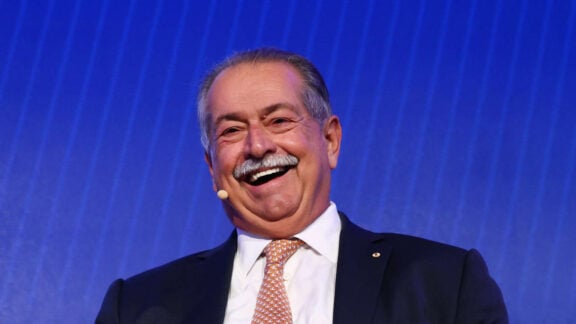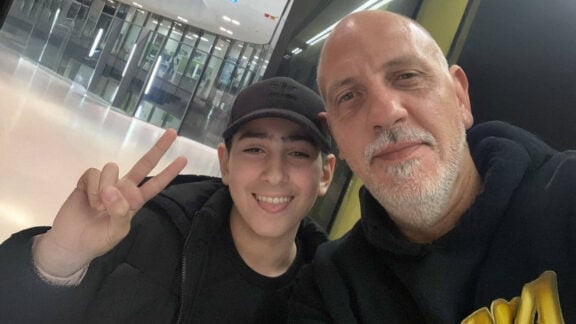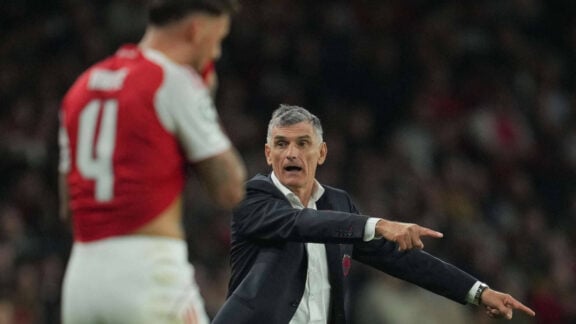Frank’s Hairdressing, in Northcote, marked half a century of operation. It is a rarefied space where time flows to the rhythm of the scissors and stories. Young and old, the ordinary and the celebrated, come and go at the traditional barbershop – for a good haircut, and to honour a man who has become an integral part of the neighbourhood. Frank owns the longest-serving business operating on the main strip.
Cutting a cake was not for Frank. Hair is his forte and life. So, for the fifty-year anniversary, Frank and his son-in-law, George, organised a haircutting marathon with all proceeds going to the Salvation Army. It was they said a gesture of love and community.
“Excellent!” shouts a customer as soon as his haircut is done.
“I take that ‘excellent’ as a gift” Frank laughs.
“It’s recognition for the effort I’ve put in. Despite my age, I’m enthusiastic. I love what I do.”
Retirement is not even remotely considered. He’ll die with scissors in in his hand.
“I’ve told my son-in-law, when I die, to put a pair of scissors next to me.”
Becoming a barber at 13
Frank was born in Epitalio, a village in the Peloponnese, amid the hunger and brutality of World War II.
Frank’s father was killed in the war, when Frank was still a young child. Two years after his father died, his brother died from typhoid.

His mother returned to her village, alone with two children, where she struggled to cope. When Frank turned 10, she sent him back to Epitalio to live with his uncle who ran a barbershop—a family business once shared with Frank’s father.
“After school, I didn’t play with the other kids. I didn’t like getting dirty” says Frank.
“I’d go to the barbershop, do my homework, and then watch my uncle cut hair, letting my mind drift with the stories they shared. At the same time, I’d observe what he was doing—learning every day.”

He gave his first haircut in secret—at the age of 13—to a classmate who’d been told he had to come to school on Monday with a fresh haircut.
“It was Sunday, and I worked from two-thirty to five-thirty—three whole hours! If it hadn’t gotten dark, we’d still be there. The next day, when the principal praised the haircut, I grew five inches.”
Destiny has its own script. A few months after that first haircut, Frank found himself taking over the barbershop, after his uncle fell off a donkey and broke his hip. The customers upon hearing the news of his uncle’s misfortune, encouraged the boy to cut their hair himself. So it began.

Since then, he’s never done any other job. Even during his military service, he was a barber—cutting the hair of 1,500 soldiers a month.
The journey to Australia
and back again
In 1965, he boarded the Australis on its maiden voyage to Australia, to marry his wife and start a new life.
“I arrived in September, in the rain. I had mixed feelings” says Frank.
Like all migrants, he says he had “imagined Australia differently—swimming pools, nice houses, and a big city”.

“Even if I’d wanted to go back, the distances were too great—and besides, my pride wouldn’t allow it.”
Like many migrants at the time, his plan was to “stay five years, then return”.
His aunt, who had spent 50 years in America before moving back to Greece said, “The five years you’ve got in mind forget them”. “You’re going to a foreign land, to sow in foreign fields. What you reap there, you won’t be able to bring back to Greece.”
She was right says Frank, “Once you start a family, going back becomes very difficult.”

Twenty years later, though, after his daughter finished school, the family left for Greece intending to stay for a year. They ended up staying 10.
“‘The best years of my life were those 10 years we spent in Greece,as my wife often tells me.”
“We had a great time. Greeks live differently. In Australia, life flows without nuance. In Greece, it’s unpredictable. You wake up in the morning and have no idea where you’ll end up by night.”
Just a few months into living in Greece, he couldn’t be without the work he loved, so he opened a hair salon in Pyrgos. As diaspira he also established the Society of Greeks from Overseas in the Prefecture of Ilia, and he served as president.
“In the morning I’d go to the salon, then a siesta in the afternoon, before heading back to work. In the evenings, we never knew where we’d end up. Sometimes, we’d go for coffee to Patra—only to return the next day to open the salon.
While Frank sometimes longs for Greek life he also loves Australia.

“In Greece, the weather dictates your life. In winter, it pulls you into little tavernas; in summer, to the beaches.”
“Life in Australia was beautiful too—we built our community.”
He recalls the years he spent as secretary of the Olympian Society, the many trips they took across the country, their unforgettable adventures.
Frank says that in Australia the community banded together.
“We tried to blend two hardships into one” he says about longing for home and living in what was a foreign land.
“We leaned on one another. We shared the desire was to stay united, to speak our language.”
He is a little conflicted and says, “We may have isolated ourselves from the Australian system”.
“Maybe that wasn’t right, in retrospect.”
It’s the pride and
love that remain
Frank says he has “built a story here” .
“I owe that to my dedication to the job. I wanted to do my work properly—and I got that principle from my uncle.
In his new homeland, what Frank loved first and foremost was the family he had. Then, as he says, “I came to love the people.”
“I’m the kind of person who wants to be around others. What I realised in life is that it’s easy to make an enemy, but hard to make a friend.”
Frank is committed to “making friends, not enemies”.
He says he has “built a circle around me of people” he relies on.
“They look at me with love, with appreciation, and with respect”.
“I return it, or radiate it and receive it back. I see everything through love. And that’s what I want to receive in return… Love.”

